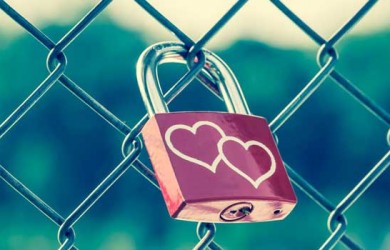Emotional Closeness and Security in a Family

 Listen to this article
Listen to this articleFamily relationships are an integral part of our lives and are one of the most important social units in our society. It brings around a sense of comfort and belonging. If one were to put it typically, a family makes a house into a home.
There are many different types of families present in our society, but they all exist to serve the same functions – to provide care, affection, security, and social control.
The ties one forms with their family are the very first one. This is why it is all the more special.
These ties help build character and develop a child into the adult they are bound to become. It is your first learning institution. Here you learn to distinguish right from wrong, good from bad, and so on.
Emotional closeness and security in the family are something that can make or break a person.
These factors are well understood all around the world. Family closeness holds a special place everywhere, regardless of religion or culture.
But have you ever wondered why? What role does a group of people related by blood play? And most of all, why is emotional closeness and security in a family so important?
What is emotional closeness and security in a family?
Before we get into the “whys,” we need to clear out the “whats.”
Emotional closeness is something every human will experience. It is human nature. No matter how cold you are, you will get attached to one thing or the other. For most people, it is their families.
This creates a sense of caring for and trusting someone. It is a bond where you share transparency and openness.
And if we talk about security in a family, then it is the feeling of being protected — the feeling that you will be accepted here no matter what.
It is a feeling that lets you be who you are without any pretenses.
Benefit of emotional closeness and security in a family?
The answer is quite easy. It helps develop many favorable traits in your children.
A study examining the effects of emotional closeness to parents and grandparents on a child’s adolescent adjustment found that emotional closeness to the closest grandparent was more strongly associated with reduced adjustment difficulties among adolescents with higher levels of emotional closeness to their parents.
Let us take two families, for example. Family A and Family B. Both have a stable income, a house, and the same number of people in the house.
The only difference is Family A has a nicer atmosphere, where needs are fulfilled with love and care. On the other hand, in Family B, love and care are not much of a staple, and only the needs are fulfilled.
How will this affect the children? The children from Family A will be happier. They will be confident to share a more genuine bond with their parents. Overall they will be a stable, loving family.
On the other hand, the children from Family b may face insecurities and feel emotionally distant and more like a burden. This will result in emotionally disconnected relationships and a distant family.
Here are a few things you can do to make your family more emotionally intelligent and secure:
- Teach generosity: Part of maintaining loving relationships is to partake in the act of giving and receiving. Teaching generosity to your kids will help them improve their relationships and social connections.
- Give your time and affection: For your kids to feel secure around you and to have more security in a family, you must indulge in some quality time with them. Also, your care and affection towards them would not go unnoticed and would teach them to be more affectionate towards others.
- Lead by example: Kids mirror your actions, so what you preach should not be much different from what you practice. LIstening when you wanted to be heard, taking care of your mental and physical health, managing your emotions, taking responsibility for your actions, and being generous when expressing affection are some things that you must help your kids learn to make them more emotionally close and intelligent.
Also watch: What is emotional intelligence.
What are the side effects of a troubled family?
Let’s continue looking into Family B.
This is a family that has grown without emotional closeness and security in a family. They have grown up and are ready to go into society.
However, their experiences from their childhood and teenage years have stayed with them. Even though they have grown, they lack confidence, and their insecurities have grown on them.
The fact that they never properly received love or care makes them vulnerable. They are prone to believe anyone or anything that shows them the slightest hint of affection.
Furthermore, because they do not know what love is, care and security in a family feel like they are unable to forward them to someone else.
This makes an entire cycle of suffering and heartache. This can even cause some major mental health issues such as depression and anxiety.
The most dangerous thing about this is that those devoid of love and affection will seek then in the wrong places.
Therefore, it is important to provide these basic things like love and security in a family, not only for your household but for the entire society.
Here are some of the signs of a dysfunctional family you must look out for:
- Abuse: One of the most alarming and obvious signs of a dysfunctional family if any form of physical, emotional, or sexual abuse and neglect. A study even suggested that the aftermath of childhood abuse does not dissipate with time, but continues to influence family relationships in mid- and later life.
- Denial: Ignoring the conditions you live in or hiding your emotions from other members of your family.
- Poor communication: Criticism that sends mixed messages, rules that do not make any sense, feeling hopeless, or walking on eggshells at all times.
- Lack of compassion and intimacy: Emotionally absent parents, exposure to inappropriate physiologically damaging scenarios.
Share this article on
Want to have a happier, healthier marriage?
If you feel disconnected or frustrated about the state of your marriage but want to avoid separation and/or divorce, the marriage.com course meant for married couples is an excellent resource to help you overcome the most challenging aspects of being married.
Learn More On This Topic

Counseling
How Can Blended Family Counseling Help Your FamilyBy Marriage.com Editorial Team, Relationship & Marriage Advice

Therapy
Top 10 Reasons Why Your Family May Need Family CounselingBy Marriage.com Editorial Team, Relationship & Marriage Advice

Gift Ideas
10 Best and More Blended Family Gifts for the Modern Blended FamilyBy Marriage.com Editorial Team, Relationship & Marriage Advice
You May Also Like

Relationship
The Importance Of Maintaining Healthy Family RelationshipsApproved By Milica Markovic, Psychologist Coach MA

Emotional Intimacy
What To Do When You Feel No Emotional Connection With Your HusbandApproved By Angela Welch, Marriage & Family Therapist

Relationship
21 Key Secrets To a Successful MarriageApproved By Angela Welch, Marriage & Family Therapist

Relationship
25 Common Marriage Problems Faced by Couples & Their SolutionsApproved By Angela Welch, Marriage & Family Therapist

Relationship
55+ Best Funny Marriage Advice: Finding Humor in CommitmentApproved By Christiana Njoku, Licensed Professional Counselor

Relationship
35 Relationship Goals for Couples & Tips to Achieve ThemApproved By Jenni Jacobsen, Licensed Clinical Social Worker

Romance
35 Romantic Games for Couples to Fan the Flames of LoveApproved By Angela Welch, Marriage & Family Therapist















